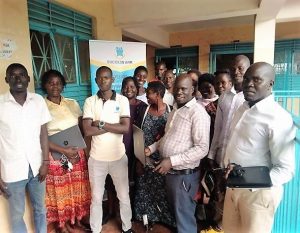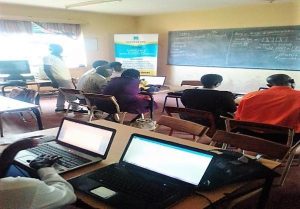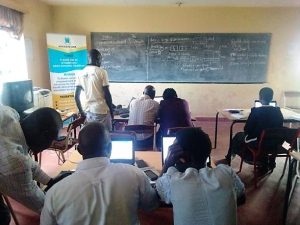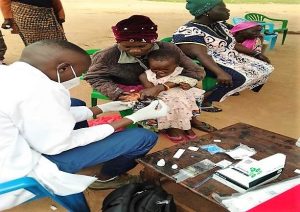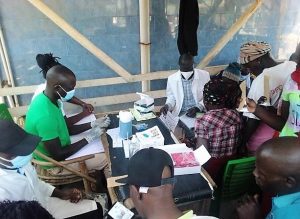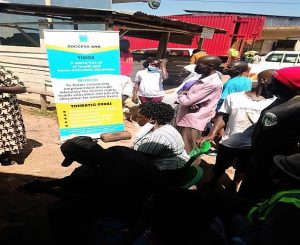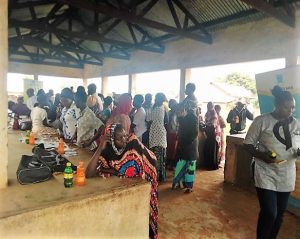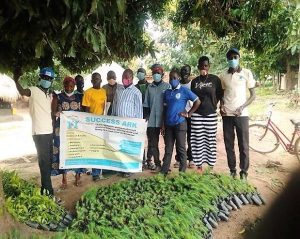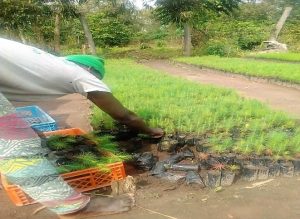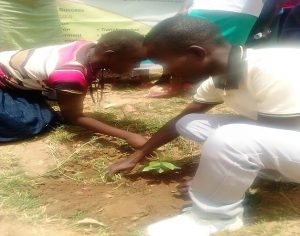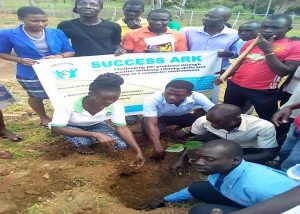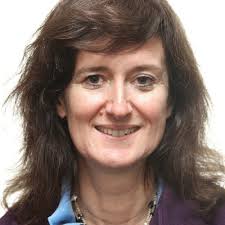The information contained in this work and the recommendations proposed seek to expand the opportunities for older adults to maintain their health as they age. The current situation of aging in the world deserves immediate attention. Society can no longer afford to merely ensure the survival of its citizens to advanced ages; it must now promote the healthy and active aging of the population, which can be planned and supported. The scientific-technical advances achieved still do not satisfy the needs of an aging population. The investment that governments make in science and technology for social good must be aimed not only at prolonging years of life but also at achieving a satisfactory quality of life in a world population that is getting older every day

By Nicolas Castillo
Biochemical. Private Laboratory Santa Clara de Saguier Sanatorium, Santa Fe, Argentina. Graduated in Clinical Biochemistry. Master in Public Health. Master in Digital Health Management
Population Aging, a Challenge for Public Health in Latin America and the World
INTRODUCTION
Old age and aging are problems that modern societies have been facing for a relatively short time. Aging is an integral and natural part of life, it is a biological process that is accompanied by a great vulnerability to disease, and in which individuals present a series of characteristic physical manifestations, not particularly associated with any disease. Aging is a process that lasts a lifetime. It is multidimensional and multidirectional, in the sense that there are differences in the rate and direction of change (gains and losses) of the different characteristics of each individual and between individuals. Every stage of life is important. Therefore, aging must be viewed from a perspective that encompasses the entire life course. Aging is a very complex and variable phenomenon. Not only do organisms of the same species age at different rates, but the rate of aging also varies within the organism of any species itself; This heterogeneity between individuals is a characteristic of ageing.
The most significant problem of aging is the loss of autonomy that leads to dependency. It is a state of a permanent nature, in which people find themselves who, for reasons derived from age, require the attention of another or other people or important help to carry out basic activities of daily life. Aging and dependency constitute a real challenge for families and the social policy of a country. That is why the societies of the different countries must face this challenge in an equitable and supportive manner so that all people can function autonomously and with quality of life in this period. The notion of healthy aging is a health goal, individual and for the population.
Health and functional capacity are of vital importance for the quality of people’s social life; The level of functional capacity determines the extent to which they can manage autonomously within the community, participate in different events, visit other people, use the services and facilities offered by organizations and, in general, enrich their own lives and those of others of the people closest to them.
The increase in older adults will undoubtedly demand the need for more services, related to educational, economic, social, health, environmental, recreational and generational aspects, among others. The present work was based on a documentary review of different works carried out at a global, regional and local level in order to give a different approach to the aging of the population.
The clinical history of elderly people must unquestionably contemplate an analysis, to a lesser or greater extent, of their functional capacities. This evaluation allows the knowledge of the present and past functional situation, and the realization of the functional diagnosis. The functional assessment of the elderly is essential for the design of individualized geriatric care plans. The most important functions to assess in the elderly are physical, mental, and social function. Therefore, functional capacity is usually assessed through the degree of autonomy one has to carry out a series of daily activities related to personal care (basic activities of daily living: moving around the house, eating, dressing, washing oneself, drinking a bath or shower, use the toilet,..).
It is currently accepted that functional capacity is one of the best indicators of the health status of the elderly, and it is very useful for predicting disability, mortality and consumption of healthcare resources, as well as for screening for alterations in the state of the elderly health with preventive objectives. Taking functional capacity into account, dependency will be understood as the fact of not being able to fend for oneself to some degree, that is, having difficulties or not being able to carry out certain activities that are common for the population as a whole. To approach the social burden that dependency represents in old age, some authors establish the need to evaluate those factors that have a greater risk of being in a situation of dependency in old age, factors that are known as determinants or predictors. Among the factors that show a greater risk of dependence in old age, illiteracy, widowhood, suffering from a situation of comorbidity with three or more diagnosed chronic diseases, feeling unwell or very unwell, having exceeded 75 years of age or being obese stand out. On the contrary, the characteristics that seem to determine more favorable situations when dealing with old age with a certain quality of life and autonomy are having educational resources (secondary or university), enjoying a medium or high social status, doing some physical exercise and not be in a situation of loneliness. In Spain, demographic and social changes are producing a progressive increase in the population in a situation of dependency.
PUBLIC POLICY AND AGING
Public policy refers to the philosophies and priorities followed by a government (in the form of legislation or programs) and represents the emphasis on government responsibility. The main influencing factors are the number of those affected or the organized pressure groups. Today we clearly observe in a large number of different national censuses, that there are fewer children and older people are increasing (change in the population pyramid). For this reason, the aging of nations is an important imperative of public policy in this century, having been exposed in the 1st World Assembly on Aging, in 1982 (Vienna), and reaffirmed in the second held in 2002 (Madrid). Health policy for older adults must consider the unique needs and problems that distinguish them from non-elderly people. A pioneer was the World Health Organization (1959) and, subsequently, numerous other international organizations agree that the most important thing is to maintain functionality in daily life (quantifiable with geriatric assessment). There is consensus that this is the most important factor in older adults to predict possible future dependence, the use of health resources, economic resources or death. As the percentage of the elderly (>80 years) increases, something that occurs in all countries, an increase in disability is projected. This would increase the emotional, social, economic and environmental handicaps. The dominant view of health planners and planners from the 1980s to the 1990s was that the elderly would be totally dependent and very expensive, but this has been denied. Currently, in the United States of America and other countries (including culturally close ones, such as Spain) it has been shown consistently over the last ten years that disability is decreasing despite the increase in the very elderly. In other words, by investing in efficient programs and with geriatric services focused on function, it is possible to reverse the projections. Something similar was done in the global fight against child malnutrition and is similar to what is currently being done against morbid obesity. Any human being with multiple chronic noncommunicable diseases that affect their functionality will have a decrease in “quality of life” that will affect the family and require prolonged care. We know that functional impairment is preventable.
ACTIVE AGING
The World Health Organization (WHO) promotes “active ageing” which is based on three pillars: social participation, economic security and health. Most countries advance first in social participation. The same thing happened in Argentina where municipalities, churches and other organizations have implemented it to achieve “participatory ageing”. Achieving economic security is complex and is being faced in various ways to achieve a decent and sustainable pension system over time. Health aspects are generally the most backward. Its great guidelines have already been studied in other countries, so we have the knowledge about the correct way to do it. Efficient health systems must respect the following three guidelines:
- Acute and continuous and integrated services that are developed simultaneously: massive prevention and promotion to achieve “healthy ageing” in the majority of the population; ambulatory health care; hospital geriatric care for acute cases; implementation of functional geriatric recovery units (average stay) and the development of long-term care at home and in institutions.
- Training of health teams, together with an adequate number of geriatricians. Academic education and training programs are required for all health and other professional careers.
- Adequate financing, including ongoing, outpatient, and institutionalized care.
RETHINKING OF HEALTH POLICY
In societies, there is a common concern about the rising costs of health care for the elderly and the increase in the number of citizens who require continuous medical-social services.
Policies for the elderly should be formulated within the context of other age groups because:
- The well-being of the older population is based on the living conditions of the young years. The ability of the elderly to move easily, retain their hearing, vision and mental faculties, and take care of themselves is, in part, a result of adequate health care at an early age. Continued efforts to reduce health inequalities for all will also benefit the elderly.
- The health programs implemented for the elderly also serve young people, especially those who suffer from some kind of disability.
A reassessment of the method by which health care for them is conceived, organized and delivered is required. It has been amply proven that the classic model of medical care, useful in the young adult population, fails when it is applied automatically to the elderly.
A simile would be that of child health and especially in those who are born with low weight. It could therefore be considered “discriminatory” today to provide appropriate health care only for the fact of being “old” or in places not appropriate for them, especially if the staff is also not trained and there are no geriatric specialists to attend to cases more complex.
The main objective of a national health policy for the elderly should be to keep them physically and mentally independent for as long as possible. This will require an effective health care system and adequate financial means. The older population is different and requires its own services. They currently receive the same services as the younger ones. Today no one disputes that in order to obtain good quality care for populations of children or pregnant women, changes and investments had to be made. In addition, it was possible over time to reduce costs and improve quality of life. Today it is wrong not to have the trained health teams, nor the necessary geriatric services. This is a responsibility of all the governments that have signed the agreements of the 2nd World Assembly on Aging in 2002, in Madrid.
GERIATRIC CARE
The elderly needs basic health services and economic-social assistance similar to the rest of the population, although adapted to their concrete, peculiar and specific needs.
If we are heading towards an older society, we must emphasize the development of geriatric medicine. The geriatric service (hospital and its community network) in Europe and other countries is the cornerstone of healthcare provision for elderly patients and has proven to be cost-effective. Hospitals in the United States of America have shied away from this role, in part due to an emphasis on high-tech curative medicine, but today they see the elderly as the majority group of hospitalized patients and have begun to emphasize ongoing geriatric care.
Hospitals often act as an important focal point for receiving medico-social services for the sick elderly population. Consequently, the development of a more human orientation with an emphasis on functional recovery, less technical towards its inpatients, with treatment by a multi-professional geriatric team is a welcome innovation. The Geriatric Service or Unit plays the central role both in the provision and in the cooordination of the continuous care requirements in a close relationship with the primary care teams. It is obvious that this will depend, to a large extent, on how doctors and health teams are trained (undergraduate and postgraduate) in the basics of geriatrics. This is the current line of development of the European Community and other countries.
Geriatrics’ focus on caring rather than healing can help rejuvenate medical practice in general. It achieves better doctor-patient communication and greater commitment of family members in treatment guidelines.
The implementation of a national policy for the elderly is essential, regarding its health dimension. Latin America currently faces not only the challenge of achieving these goals for a growing number of its population, but also with a more compressed term of years (about 25 years) than that of the most developed countries (100 years), to respond to these challenges. The “social” dimension of public policies for the elderly has presented achievements, from the point of view of the number of programs, social organizations developed and others. These programs have largely managed to change the perception of the elderly people. However, the “quality of life” of older people is directly related to physical-mental well-being and therefore to health indicators. In general, the biggest fears of the elderly are premature aging, losing health (especially being dependent on their care), poverty and loneliness. Regarding the measures implemented in the region, of the public programs for the elderly, we can say that, of the three priority areas, such as biological (medical), psychological and social defined as interacting and, therefore, in the actions and measures to be carried out, the biological one has had a slower pace of execution than the other two. Taking only the medical aspects into consideration, we can affirm that one of the most relegated has been the training of specialized human resources, that is, geriatricians and services, despite the fact that these are among its specific objectives. Surely, in the future we will be judged by how we treat our elderly people today. It is essential to invest in comprehensive community health, including primary care adapted to older adults, recognizing that it has long-term benefits with the appropriate budget allocation and training support for professionals and formal and informal caregivers. The adaptation of Health Centers is required, eliminating architectural and administrative barriers, as well as the inclusion of protocols for the elderly in Primary Health Care services.
The challenge also involves raising awareness in society as a whole to understand aging as part of the life cycle and not as a different stage from others. All efforts must be made to delay dependency and disability until the last moments of life. This implies promoting, preventing, assisting and rehabilitating; the classic functions of public health that have their specificity when talking about older adults.
CONCLUSION
The information contained in this work and the recommendations proposed seek to expand the opportunities for older adults to maintain their health as they age. The current situation of aging in the world deserves immediate attention. Society can no longer afford to merely ensure the survival of its citizens to advanced ages; it must now promote the healthy and active aging of the population, which can be planned and supported. Planning for a healthy and active old age implies launching promotion programs, prevention services and timely diagnosis in the field of primary health care with this orientation, long before old age begins. The real expectation of a healthy and active life for older people forces us to reformulate the concept of “aging” as a burden and as a deficiency that still prevails in Mexican society and, instead, to highlight the current participation of older people in social, economic, cultural and civic spheres, as well as in its continuous contribution within society, particularly in the transmission of values through generations and during a longer period of life. The promotion and protection of the human rights of the elderly must be a concern for all, because aging is a universal process. Older people are especially vulnerable as a group, in part due to stereotypical and misconceptions that they are an ‘outdated’ segment of society; nevertheless, as life expectancy increases and health improves, people remain functional and active longer than ever before, both professionally and in the community. Encouraging and supporting older people to stay active for as long as possible will have benefits for society as a whole. From this perspective, it is clear that the development of new care models that are qualitatively different from the current ones, that are adapted to the new needs and promote the training of competent human resources, necessary both at the primary level and at the specialized levels, are a priority. These new models will have to be developed based on considerations of the national context of each particular region, recognizing the social, legal and institutional aspects, as well as the forms of social organization that prevail. Likewise, they must be based on the recognition of the obligation of the State, institutional responsibility and social co-responsibility. Models like this would focus on the community and the family, help rebuild the social fabric and reward intergenerational solidarity. In this way, greater distancing between medical care and social services will be avoided and it will help to make them more dynamic, taking into account regulations, institutional feasibility, human capital requirements and the necessary sustainability. Currently, government work is not only defined by institutions and public servants: but also various actors are recognized who participate actively and committed in the definition and execution of public policies under a principle of co-responsibility, participation and plurality. This way of doing government is defined as governance, and it is necessary in a scenario where aging is not just a matter of age or of a single population group, but involves everyone directly or indirectly and requires innovative and sustainable proposals. Undoubtedly, the role of organized civil society – which had been developing beforehand – becomes relevant, so its actions must be accompanied by an adequate legal framework that gives them strength and transparency. From this perspective,
- Change the traditional conception that aging implies passivity, isolation and dependence; Emphasis must be placed on autonomy, the exercise of rights and co-responsible participation by the population through self-care and collaboration in health promotion actions.
- Include the age perspective, as has happened with the gender perspective, in all public tasks, which will allow redirecting a greater amount of resources and outlining the implementation of complementary programs and actions in less time.
- Review the institutional capacity to ensure that it is adequate in the performance of functions, resolution of problems and achievement of objectives of the public policies necessary for development in each stage of life.
- Strengthen and stimulate the capacity of the family and the community to respond to the needs of the elderly, which promotes care at home and contributes to the creation of new jobs in this area.
- The link between research in public health and other areas will allow the transfer of knowledge to health policies and strategic plans related to the elderly, their families and their environment to continue.
REFERENCES
- United Nations, 2002 (UN). Report of the Second World Assembly on Aging. New York. United Nations.
- Rojas Pérez M, Silveira Hernández P, Martínez Rojas LM. Gerontology and Geriatrics, a count of little more than a century. Medical Record of the Center. 2014; 8(1). [Cited: February 8, 2015]. Available in: http://www.revactamedicacentro.sld.cu/index.php/amc/article/view/49/153
- Bases of the Federal Health Plan 2004-2007. Ministry of Health of the Nation. Federal Health Council (2004). Presidency of the Nation. Buenos Aires, Argentina.
- Mandatory Medical Program (PMO) (2001). Ministry of Health of the Nation. Superintendency of Health Services, Buenos Aires, Argentina.
- Transfer of knowledge. [Cited 2013 Apr 20]. Available in: https://www.who.int/es/news-room/fact-sheets/detail/ageing-and-health
- Madrid International Plan of Action on Aging Santiago de Chile, (2003). Regional Dialogue.
- Primary Care Adapted to Older Adults. Regional Implementation Strategy for Latin America and the Caribbean. Towards a PHC adapted to the Elderly (2004). Irene Hoskins, Alexandre Kalache, and Susan Mende. PAHO/WHO Document
- Pérez Rojo N, Laria MS, Pastor Castell-Florit S, Piñeiro Pérez J, Romero Barroso Z. Research on health systems and services in Cuba and Projections until 2015. Cuban Journal of Public Health. 2010; 36(3)209-214. [Cited February 8, 2015]. Available in: http://scielo.sld.cu/pdf/rcsp/v36n3/spu04310.pdf
- La construcción de las bases de la buena salud en la vejez: situación en las Américas. Martha Peláez. Available in: https://iris.paho.org/bitstream/handle/10665.2/8094/26267.pdf?sequence=1&isAllowed=y
- WHO Global Network of Age-Friendly Cities and Communities. [Cited April 20, 2013]. Available at: https://www.who.int/es/publications/m/item/decade-of-healthy-ageing-connection-series-no2
- Report on the Elderly in Argentina (2000). Chap. 3 “Health in the elderly”, Carlos Vassallo, Matilde Sellanes. Secretariat for the Elderly and Social Action. Buenos Aires, Argentina.
- Llanes Betancourt C. Demographic aging and the need to develop professional skills in geriatric nursing. Rev haban cienc méd. [magazine on the Internet]. 2015 Feb; 14(1): 89-96. [Cited Oct 19, 2015]. Available in: http://scielo.sld.cu/scielo.php?script=sci_arttext&pid=S1729-519X2015000100013&lng=es
- Revue de littérature sur la promotion de la santé des personnes agées (1999). Good vivre avec son age. Sante publish. Collection Promotion de la Santé. Document available at www.msss.gouv.qc.ca. Ministère de la Santé et des Services Sociales, Québec, Canada. Orientations ministérielles sur les services offers aux personnes agées en perte d’autonomie. (2001). Ministry of Health and Social Services, Canada.
- World Health Organization (2002) “Active ageing: a policy framework”.
- Department of Prevention of Noncommunicable Diseases and Health Promotion, Aging and Life Cycle.
- Aging, Communication and Politics (2004). Ministry of Communications and Gerontological Psychology Center (CEPSIGER), Bogotá, Colombia.
- Gascon, S. and Redondo, N. (2005). “Programming of integrated long-term care services for elderly people with loss of autonomy in Argentina, Chile and Uruguay”. Final report of the International Technical Cooperation between the Pan American Health Organization, the Government of Quebec, Canada and the Ministries of Health of Argentina, Chile and Uruguay. Gascón, S., Redondo, N. and collaborators, 2003. ECLAC, preliminary document on social and community participation and the situation of older persons in Latin America and the Caribbean, Santiago de Chile. Gascon, Silvia and Tamargo, Maria (2004). Citizen Participation in Health in Mercosur, Fundación Salud.


